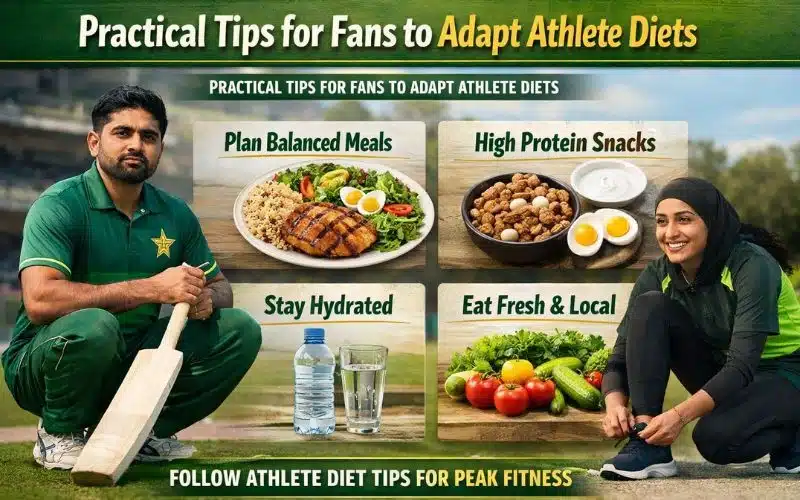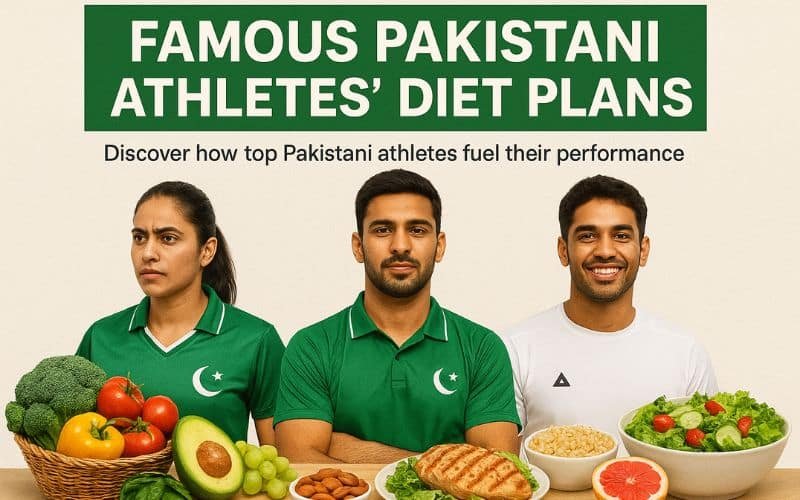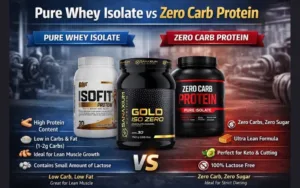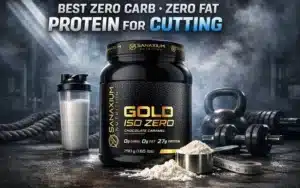No products in the cart.
Return To ShopFamous Pakistani Athletes’ Diet Plans
Athletic performance is not only the result of hard training and dedication but also the outcome of smart nutrition choices. Famous Pakistani athletes from cricketers and squash legends to MMA fighters and footballers rely on structured diet plans to fuel their bodies, recover quickly, and stay at the top of their game. Their eating habits combine traditional Pakistani foods with modern sports nutrition principles, making them an interesting blueprint for aspiring athletes and fitness enthusiasts.
Diet & Nutrition of Top Pakistani Athletes
Before diving into specific foods, it’s important to understand that every athlete’s diet is tailored to their sport, position, and body requirements. Cricketers focus on endurance and hydration, wrestlers need high-calorie strength-based meals, while female athletes require balanced nutrition with micronutrient emphasis.

Cricket Stars’ Diets
Pakistani cricketers such as Babar Azam and Shaheen Afridi maintain diets rich in lean proteins, rice, vegetables, and hydration strategies. Whey supplements like whey protein are often used for muscle recovery after intense training sessions.
Squash & Endurance Athletes
Legends like Jahangir Khan followed high-carbohydrate and protein-balanced diets. For today’s athletes, structured carb intake and even carbohydrate supplements help maintain energy during extended matches.
Wrestlers & MMA Fighters
Strength athletes like Inam Butt and MMA fighters need calorie-dense meals with high protein, healthy fats, and post-training supplements such as creatine for explosive power.
Female Athletes
Role models such as Sana Mir and Hajra Khan emphasize balanced diets with lean proteins, vegetables, and vitamins & minerals for immunity and energy balance.
Macronutrient Breakdown in Athlete Diets
Every famous Pakistani athlete’s diet plan centers around the three primary macronutrients, but the ratio depends on their training goals. Understanding this balance can help everyday individuals apply the same principles.
Proteins
Proteins are the foundation of muscle repair and strength building. Athletes rely on eggs, chicken, fish, and supplements like casein protein for slow overnight recovery.
Carbohydrates
For athletes with endurance demands, complex carbs like rice, oats, and daal form the backbone of energy supply. Where needed, BCAA and carb-based supplements give additional stamina.
Fats
Good fats are critical for hormone balance and long-term energy. Natural sources like nuts and olive oil are common, and omega-3 supplements in Pakistan play a vital role in joint health.
Supplements Commonly Used by Athletes
Beyond whole foods, professional athletes use supplements to enhance recovery and support demanding training schedules. These products are not shortcuts but scientifically backed aids to complement disciplined diets.
- Explosive strength: Creatine supports power in fast-paced movements.
- Endurance: BCAA reduces fatigue during back-to-back training sessions.
- Immunity & gut health: Glutamine aids recovery and protects immunity.
- Night recovery: Casein protein releases amino acids slowly overnight.
- Complete health: Vitamins & minerals prevent deficiencies during intense seasons.
Recovery & Lifestyle Habits
Nutrition is only one part of an athlete’s lifestyle. Recovery strategies and habits also shape their long-term success. Pakistani athletes combine modern methods with traditional wisdom for recovery.
- Structured routines: Many athletes rely on strength & recovery stacks to reduce fatigue.
- Hydration: Water and electrolyte balance are vital, especially during cricket matches in extreme heat.
- Rest & sleep: A consistent sleep cycle allows muscle growth and mental sharpness.
Practical Tips for Fans to Adapt Athlete Diets

Most people admire professional athletes but assume their diets are unattainable. In reality, you can adopt many principles from famous Pakistani athletes without needing the same intensity.
- Use weight gainers if you struggle to meet calorie needs.
- Those aiming to cut fat can incorporate fat burners safely with exercise.
- Focus on traditional staples like roti, lentils, vegetables, and yogurt, which are cost-effective and nutritious.
Common Myths About Athlete Diets
There are several misconceptions about what professional athletes eat. Clearing these myths can help everyday people design more realistic diets.
- Myth 1: Athletes only eat bland chicken and rice.
- Myth 2: Supplements replace meals they don’t, they only support them.
- Myth 3: Female athletes eat less than male athletes; in reality, their intake is optimized for performance, not reduced.
Final Takeaway
The famous Pakistani athletes’ diet plans highlight a mix of traditional Pakistani foods and modern supplements. Whether it’s cricketers fueling for five-day test matches, squash players sustaining endurance, or wrestlers bulking for strength, diet plays a central role in performance.
For fans and fitness enthusiasts, the key takeaway is balance focus on protein, carbs, and healthy fats, use supplements wisely, and never neglect recovery. You may not be competing on the world stage, but applying these strategies will help you perform better in everyday life.









Add comment